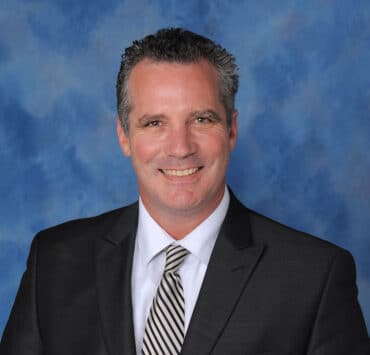Considering law is a profession rooted in precedent, it may seem as if it would take a lot to surprise an attorney. Such is not the case in pharmaceutical law, however. Pearl Siew, senior vice president and head of intellectual property at Eagle Pharmaceuticals, can attest to the surprises that she has encountered throughout her career as a lawyer in the pharmaceutical space, both throughout her career path and through the everyday fluctuations of her role.
Siew has a background in chemistry, but she originally worked as a patent attorney for Frommer Lawrence & Haug. It was in this first role that she was introduced to the pharmaceutical industry, and the majority of her work involved litigation surrounding both branded and generic pharmaceutical products. Yet, as much as she learned about the pharmaceutical industry in this role, there was still so much ahead of her.
After working for a private firm for about seven years, she then transitioned to an in-house role at Sandoz, a division of Novartis, and quickly realized that despite all that she knew about pharmaceutical litigation, she was truly surprised by the enormity of decisions faced by in-house lawyers at a pharmaceutical company. At Sandoz, she learned to embrace and even lean into the unknown.
Siew worked with Sandoz for nearly five years before transitioning to Eagle Pharmaceuticals. The change taught Siew how to scale down her work strategy. Compared to Sandoz’s 25,000 employees and Novartis’ 200,000, Eagle Pharmaceuticals only has about 150 employees. In this new role, with a smaller team of attorneys by her side, one of Siew’s biggest transitions was handling litigation that she had not had to work on when she was at a bigger company. As a senior attorney at Sandoz, there were often more junior attorneys available to handle certain types of litigation, but the caseload at Eagle Pharmaceuticals fell almost entirely on her. This was not a deterrence, however, but a welcome challenge.
Eagle Pharmaceuticals specializes in producing new age injectable treatments and sharps for oncology patients, those in critical care, and those with orphan diseases, known more broadly as rare diseases or as conditions that affect less than 200,000 people in the US. These conditions are basically unpreventable and usually result in a far lower life expectancy. As such, most pharmaceutical companies avoid making and marketing new medications in this specialty because it provides little financial incentive for the effort it takes to do so.
But Eagle is different. The firm works to accomplish its goals primarily by developing and commercializing injectable treatments, and given the company’s unique position within the industry, the intellectual property at stake is incredibly valuable. Siew manages that IP at Eagle from inception to production, helping patients living with these conditions have a chance at a longer life.
In all of these different roles within the pharmaceutical industry, Siew felt that one of her biggest challenges throughout her time has been the need to bounce back and forth between issues that are constantly being given to her, that are all, in a sense, unrelated to each other. She has to be able to think and change mindsets quickly and effectively.
In addition to her work with Eagle Pharmaceuticals, Siew also serves on the advisory board for the American Conference Institute’s annual Paragraph IV Disputes conference, or the Hatch-Waxman Series Advisory board. The conference is held in an effort to highlight in-house advisers, including Chief IP and senior IP/Patent counsel from the leading brand name and generic pharmaceutical companies in the country. She is also involved with ChIPs, which is a nonprofit organization that helps to advance and connect women working in technology, law, and policy.
Despite the surprises she may encounter in her role in the pharmaceutical industry, Siew is always able to charge ahead, give back, and to continue to push herself to grow both personally and professionally.
Who are ChIPs?
ChIPs stands for “chiefs of intellectual property.” Founded in 2005 by seven women, ChIPs is a nonprofit group that seeks to represent women in STEM fields, particularly those working in IP. Now with more than 3,700 members, women within the organization seek to use their own successes and networks to give back to others just starting out in the field, make positive change in the industry, and close the gender gap for STEM positions going forward.


